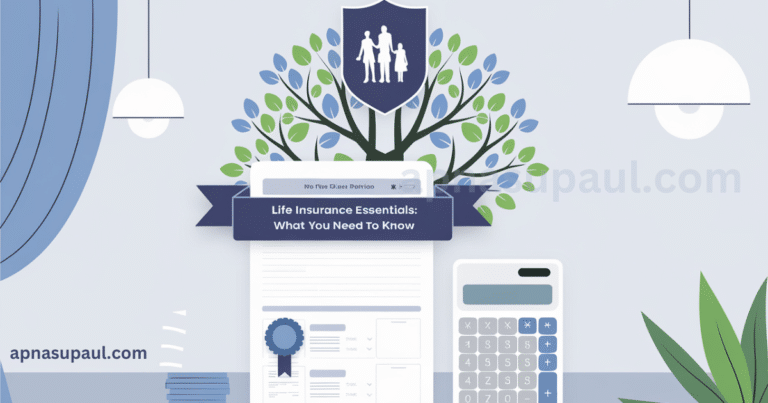Life insurance is a vital financial tool that provides security and peace of mind to individuals and their families. At its core, life insurance is a contract between a policyholder and an insurance company, where the insurer promises to pay a designated beneficiary a sum of money upon the death of the insured or after a set period. This article delves into the intricacies of life insurance, explaining its types, benefits, and considerations to help you make informed decisions.
What is Life Insurance?
Life insurance serves as a financial safety net, ensuring that your loved ones are financially protected in the event of your untimely demise. The policyholder pays regular premiums to the insurance company, and in return, the company guarantees a payout to the beneficiaries specified in the policy. This payout, known as the death benefit, can be used to cover expenses such as funeral costs, outstanding debts, daily living expenses, or even future financial goals like education.
Types of Life Insurance

Life insurance policies come in various forms, each tailored to meet different needs. The most common types are:
Term Life Insurance
- Provides coverage for a specific term, such as 10, 20, or 30 years.
- Offers a straightforward and affordable option for temporary needs.
- No cash value; the policy only pays out if the insured dies during the term.
Whole Life Insurance
- Offers lifelong coverage as long as premiums are paid.
- Includes a cash value component that grows over time.
- Premiums are generally higher than term insurance but offer the benefit of savings.Universal Life Insurance
- A flexible policy that allows adjustments to premiums and death benefits.
- Includes a cash value component that earns interest.
- Suitable for those seeking a mix of insurance and investment.
Variable Life Insurance
- Includes investment options, allowing policyholders to allocate cash value to various investment funds.
- Offers potential for higher returns but comes with increased risk.
Final Expense Insurance
- Specifically designed to cover end-of-life expenses like funeral and burial costs.
- Typically smaller in coverage amount and easier to qualify for.
Group Life Insurance
- Often provided by employers as part of employee benefits.
- Offers basic coverage at little or no cost to the employee, but may not be sufficient for all needs.
Convertible Life Insurance
- A term policy that allows the policyholder to convert to a permanent policy later.
- Offers flexibility for those who anticipate changing needs in the future.
Benefits of Life Insurance

Life insurance provides numerous advantages for both the insured and their beneficiaries:
Financial Security
- Ensures that dependents are financially stable in the event of the breadwinner’s death.
Income Replacement
- Helps replace lost income, enabling families to maintain their standard of living.
Debt and Expense Coverage
- Protects beneficiaries from the burden of paying off outstanding debts like mortgages, loans, and credit cards.
Estate Planning
- Helps in transferring wealth to heirs while minimizing tax liabilities.
Peace of Mind
- Provides reassurance that your loved ones will be taken care of financially.
How to Choose the Right Life Insurance Policy
Selecting the right life insurance policy requires careful consideration of several factors:
Assess Your Needs
- Determine the primary purpose of the policy, such as income replacement, debt coverage, or long-term savings.
Evaluate Your Budget
- Choose a policy with premiums that you can afford without straining your finances.
Determine Coverage Amount
- Calculate how much coverage is needed to support your family’s financial goals and obligations.
Understand Policy Terms
- Read the fine print, including exclusions, waiting periods, and renewal options.
Consult a Professional
- Seek advice from a financial advisor or insurance agent to tailor a policy to your specific needs.
Also Read: Health Insurance Essentials: What You Need To Know

